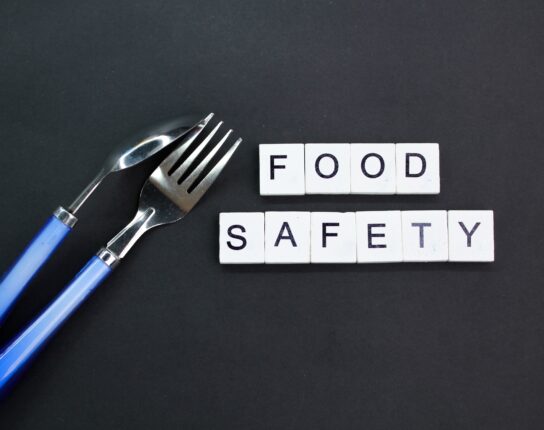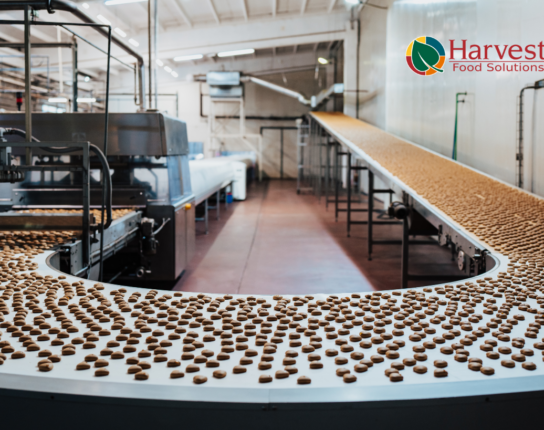It’s safe to say that for the better part of 2020, nearly every part of the world has been in a state of crisis. We are all beginning to realize how an unexpected situation differs from an actual crisis, particularly one that is ongoing.
We are starting to see examples of just how unprepared many industries are when it comes to pivoting and managing a crisis. On the positive side, this gives us an opportunity to examine current crisis management plans and to work on improving them for the future.
What is a Crisis in the Food Industry?
 In perishable foods, a crisis might be a product recall or a natural disaster. It could affect your own facility or one of your suppliers. Lately we are experiencing different crises that specifically affect food safety, like transportation issues or shortages of raw ingredients.
In perishable foods, a crisis might be a product recall or a natural disaster. It could affect your own facility or one of your suppliers. Lately we are experiencing different crises that specifically affect food safety, like transportation issues or shortages of raw ingredients.
Brainstorming the kinds of crises that might affect your business is the first step toward creating a robust crisis management plan. Once you have identified the kinds of events that could have a negative impact on your business, you can begin to plan the steps needed in order to navigate those crises.
How to Manage a Crisis
While it can be seen as a sign of stoicism or strength to handle a crisis on one’s own, the truth is that businesses function better when they assemble a solid team. A group of like-minded individuals can show more creativity in problem-solving, and will get more consistent results long term. Team members can also share the emotional burden of achieving calm in the face of crisis, which again will help changes occur more smoothly.
As part of that creativity in problem-solving, your team can brainstorm the various types of crises that may occur in your business, and assess each one to determine whether a contingency plan is needed. In the perishable food industry, those types of crises can be broken down into a number of categories.
Product Recalls
If you are a food manufacturer, you should be familiar with the idea of product recalls. Particularly in light of recent events, it should be clear that your business needs a product recall plan, even if your product has never been recalled before.
Natural Disasters
While there is no way to control natural disasters, it is possible to at least get a bit of a warning for some crisis events. Hurricanes, tornadoes, and blizzards have enough lead time to give you at least a small window within which to plan a response. Earthquakes, fires, and floods, however, happen at a moment’s notice.
In any case, your crisis management plan should include quick responses to natural disasters. Part of this plan might include decisions about your supply chain in light of events that happen to your suppliers. Another facet might be anticipating increases in demand from areas where your customers are seeing the effects of a natural disaster.
Internally-Created Events
No business’ daily operations are exempt from internal crises. One example that may come to mind quickly is labor negotiations, as strikes are crises that significantly impact the workforce. Turnover in the workforce can also have a negative effect on operations, as workers who are not as skilled as more experienced staff may make mistakes when using equipment. Similar to natural disasters, some types of internally-created crises may come with little warning.
Externally-Created Events
This is the area with which most of us are currently familiar. The current COVID-19 pandemic is a stark wake-up call that is showing many industries how far they need to go in order to be able to adequately respond to rapidly-changing situations. In the perishable food industry, we know that factors like workforce health, gaps in the supply chain, and timely transportation of supplies and end products have all been affected by the pandemic.
With particular regard for the supply chain, a food industry crisis management plan needs to take into consideration a number of factors. Maintaining connection with suppliers, no matter where they are located, is a critical piece. Assessing the risks involved in working with various ingredients is another. These, like other externally-created events, are beyond our individual control.
Building the Plan
Your crisis management team should work together to assess the level of risk of the various crisis events that might occur. This is not an easy task, but it is far better to address these concerns while not in a state of crisis if at all possible. This will help your business pivot more smoothly and make positive changes more quickly when a crisis does occur.
Team members involved in creating your crisis management plan will also be the most familiar with the protocols. This means that they can more effectively communicate the steps needed to other members of your workforce. Again, working with a team — particularly a team that has walked through hypothetical situations together — can navigate a challenging situation better than relying on a single individual.
Harvest Food Solutions is dedicated to supporting you and your team in times of crisis. Give us a call today and let’s talk about how we can help your operations navigate uncertain times together.










